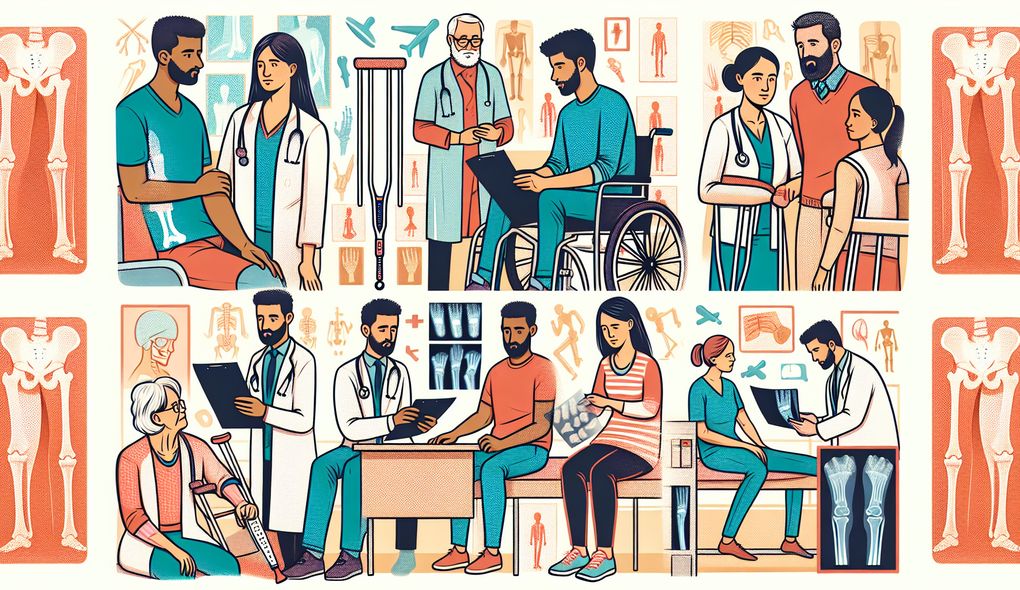Tell us about a time when you had to deal with a difficult patient and how you handled the situation.
SENIOR LEVEL

Sample answer to the question:
I once had a difficult patient who was in a lot of pain and very demanding. They were constantly complaining and questioning my treatment plan. To handle the situation, I remained calm and empathetic, explaining the reasons behind my decisions and reassuring the patient that I had their best interests at heart. I listened to their concerns and addressed them in a professional manner. I also involved their family members in the conversation to help alleviate their anxiety. By being patient-centered and providing clear communication, I was able to gain their trust and ultimately improve their experience.
Here is a more solid answer:
In my experience as an Orthopedic Specialist, I encountered a challenging patient who had been dealing with chronic joint pain for several years. This patient was frustrated and skeptical about the effectiveness of treatment. To address the situation, I first took the time to actively listen and empathize with the patient's concerns. I validated their feelings and acknowledged their frustrations while assuring them that I was committed to finding a solution. I then thoroughly explained the proposed treatment plan, detailing the rationale behind each step. I made sure to use simple language and visual aids to help them understand. Additionally, I involved the patient in shared decision-making, allowing them to have a sense of control over their treatment. Throughout the process, I maintained open lines of communication, being accessible to answer any questions or address any concerns. By adopting a patient-centered approach and effectively communicating, I was able to establish trust with the patient, improve their confidence in the treatment, and ultimately achieve positive outcomes.
Why is this a more solid answer?
The solid answer expands on the basic answer by providing specific details about the difficult patient situation and how the candidate handled it. It demonstrates strong interpersonal skills, effective communication, and a patient-centered approach, all of which align with the evaluation areas and job description. However, it could still benefit from further elaboration and examples to make it even more comprehensive.
An example of a exceptional answer:
During my tenure as an Orthopedic Specialist, I encountered a particularly challenging patient who was resistant to any form of intervention or treatment. This patient had suffered from a severe knee injury and was experiencing intense pain and limited mobility. However, due to personal fears and hesitations, they avoided pursuing surgical options or alternative treatments. To address this complex situation, I took a multidisciplinary approach. I collaborated closely with the patient's primary care physician, physical therapist, and a pain management specialist to devise a comprehensive treatment plan that addressed both the physical and emotional aspects of their condition. I scheduled regular meetings with the patient to provide emotional support, educate them about the potential benefits of treatment, and address their concerns. I also involved their family in the process, organizing a family conference to discuss the importance of their support. To build trust, I shared success stories of similar cases and engaged the patient in shared decision-making, allowing them to feel empowered and in control of their treatment journey. Over time, the patient started to open up and express their fears, allowing us to address them and gradually build their confidence in pursuing treatment. Through a combination of empathy, collaboration, and personalized care, we were able to overcome the patient's resistance, and they eventually agreed to undergo surgery. This case taught me the importance of perseverance and tailoring treatment plans to each individual's unique circumstances and concerns.
Why is this an exceptional answer?
The exceptional answer provides a thorough and detailed account of the difficult patient situation, showcasing the candidate's exceptional interpersonal skills, collaboration, and patient-centered care. The answer goes above and beyond in demonstrating the candidate's ability to handle complex cases as an orthopedic specialist. It effectively addresses the evaluation areas and aligns with the job description. To further enhance the answer, the candidate could provide specific examples of the collaborative approach taken with the multidisciplinary team and explore the long-term outcomes of the patient's treatment.
How to prepare for this question:
- Reflect on past experiences with difficult patients and consider the specific strategies you employed to handle those situations.
- Study the importance of effective communication and active listening in patient interactions.
- Research strategies for managing patient expectations and addressing their concerns.
- Familiarize yourself with shared decision-making models and how to involve patients in their treatment plans.
- Consider the value of multidisciplinary collaboration in complex cases and gather examples of successful collaborations.
- Develop a deep understanding of the emotional aspects that may influence patient behavior and decision-making.
What are interviewers evaluating with this question?
- Interpersonal Skills
- Communication
- Patient-Centered Care

